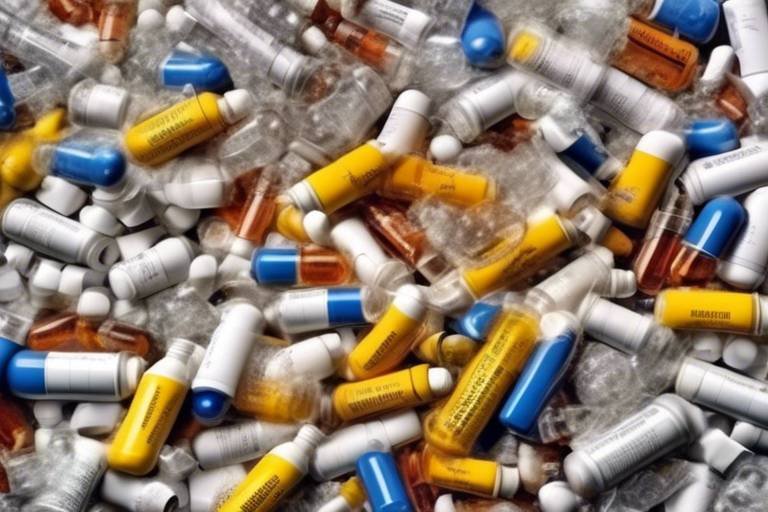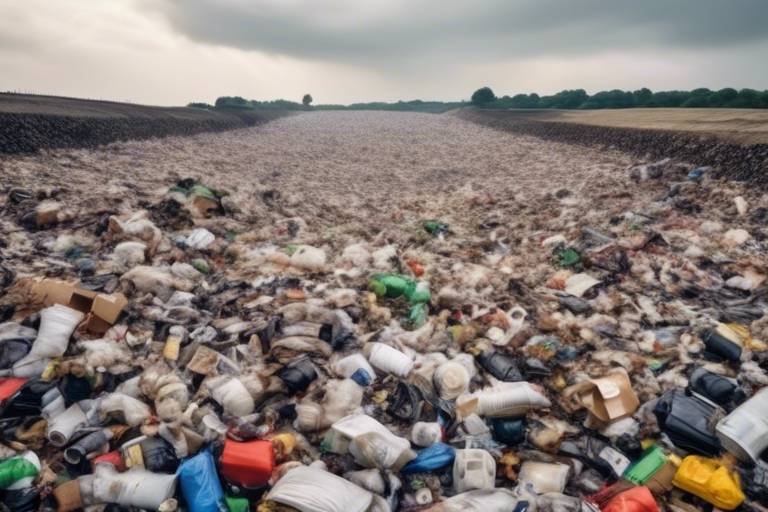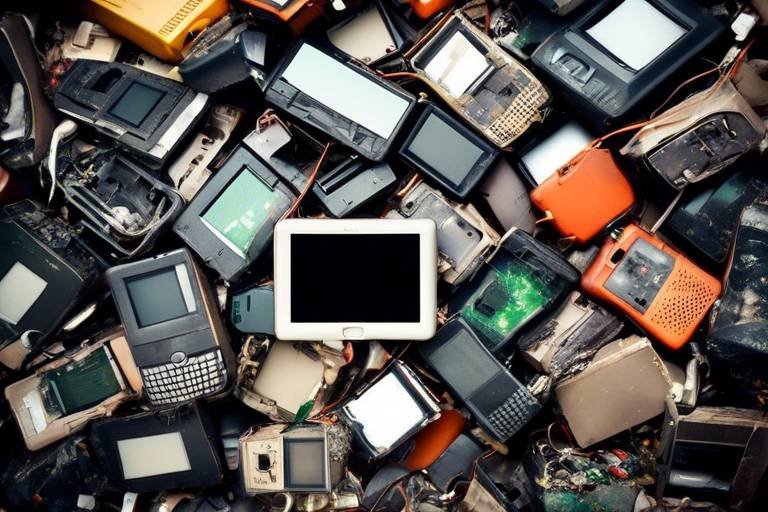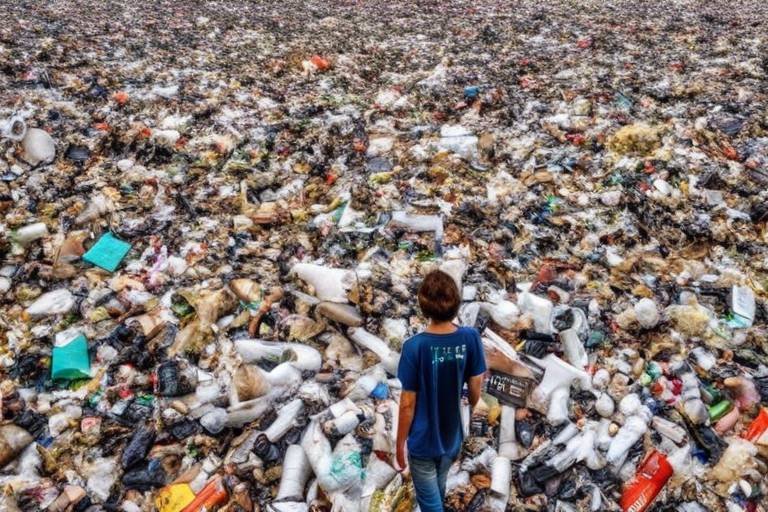The Impact of Improper Pharmaceutical Waste Disposal
Improper pharmaceutical waste disposal is a pressing issue that affects our environment, public health, and regulatory landscape. With the increasing reliance on medications, the amount of pharmaceutical waste generated has skyrocketed, leading to severe consequences if not managed properly. Imagine a world where our drinking water is tainted with trace amounts of medications, or where the soil we depend on for agriculture is polluted with hazardous substances. It's not just a distant possibility; it's a reality that we must confront. In this article, we will delve into the various impacts of improper pharmaceutical waste disposal, highlighting the urgent need for effective management strategies to safeguard our planet and our health.
The environmental ramifications of improper pharmaceutical waste disposal are profound and far-reaching. When medications are discarded irresponsibly, they can seep into our water systems and contaminate the soil. This contamination poses a significant threat to ecosystems and biodiversity. For instance, when pharmaceuticals enter waterways, they can disrupt the delicate balance of aquatic life, leading to a cascade of negative effects. The presence of these substances can alter the reproductive systems of fish, affect their growth, and even lead to population declines. Additionally, soil pollution can hinder plant growth, which in turn affects the entire food chain. The intricate web of life that sustains us is at risk, and it is crucial that we understand the gravity of this situation.
The mismanagement of pharmaceutical waste not only endangers the environment but also poses serious public health threats. When hazardous substances are improperly disposed of, they can lead to uncontrolled exposure among communities. This exposure can result in a myriad of health issues, including increased disease prevalence and the alarming rise of antibiotic resistance. When antibiotics are present in our water supplies, they can contribute to the development of resistant bacteria, making it increasingly difficult to treat infections. This is not just a theoretical risk; it is a growing concern among healthcare professionals. The implications are dire, and it is essential that we address this issue with urgency.
One of the most alarming consequences of improper pharmaceutical waste disposal is water contamination. When pharmaceuticals enter our water supplies, they can have devastating effects on both aquatic life and human health. Contaminated water can disrupt the natural behaviors of fish and other organisms, leading to altered feeding and reproductive patterns. Moreover, humans who consume this water may face serious health risks. For instance, exposure to certain pharmaceuticals has been linked to hormonal disruptions, reproductive issues, and even an increased risk of cancer. The potential long-term effects of consuming contaminated water are still being studied, but the evidence is concerning.
Pharmaceuticals can have a profound impact on aquatic organisms. Studies have shown that even trace amounts of medications can lead to significant changes in behavior and physiology. For example, fish exposed to antidepressants may exhibit altered swimming patterns and reduced predator avoidance, making them more susceptible to predation. Furthermore, reproductive issues have been documented in various species, leading to decreased populations and biodiversity. Understanding these effects is crucial for effective environmental conservation efforts.
The implications of contaminated drinking water extend beyond aquatic life; they pose serious risks to human health as well. Consuming water that contains pharmaceutical residues can lead to a range of health issues, including hormonal imbalances and increased cancer risk. The long-term effects of such exposure are still being researched, but the potential for serious health consequences cannot be overlooked. It is imperative that we take action to prevent pharmaceutical waste from entering our water supplies.
Pharmaceutical waste doesn't just affect our water; it can also leach into the soil, leading to significant contamination. This soil pollution can have dire consequences for plant life and agricultural practices. Crops grown in contaminated soil may absorb harmful substances, which can then enter the food chain, posing risks to human health. The implications of soil contamination are far-reaching, affecting food safety and ecosystem health. It is crucial that we recognize the interconnectedness of these issues and work towards sustainable solutions.
Despite the clear dangers associated with improper pharmaceutical waste disposal, there are significant regulatory challenges that complicate effective management. The lack of stringent regulations and enforcement mechanisms makes it difficult to ensure that pharmaceutical waste is disposed of properly. Existing laws often contain gaps and inconsistencies, leaving room for mismanagement. Understanding the current regulatory landscape is essential for identifying areas that require improvement and advocating for stronger policies.
An overview of current regulations governing pharmaceutical waste disposal reveals a patchwork of laws that often fail to address the issue comprehensively. Many regulations focus on specific types of waste but do not provide a holistic approach to pharmaceutical waste management. This lack of cohesion can lead to confusion and non-compliance, further exacerbating the problem. It is vital that stakeholders, including healthcare providers and policymakers, work together to develop more robust regulations that effectively address pharmaceutical waste disposal.
To enhance pharmaceutical waste management practices, several recommendations can be made. First and foremost, there is a need for stronger policies that enforce proper disposal methods. Additionally, public awareness campaigns can play a crucial role in educating communities about the importance of responsible pharmaceutical waste disposal. By fostering a culture of accountability and awareness, we can mitigate the risks associated with improper disposal and protect our environment and health.
- What is pharmaceutical waste? Pharmaceutical waste refers to any unused, expired, or contaminated medications and their containers that require proper disposal.
- Why is improper disposal of pharmaceutical waste a concern? Improper disposal can lead to environmental contamination, public health risks, and contribute to the development of antibiotic resistance.
- What are some safe disposal methods for pharmaceuticals? Safe disposal methods include returning unused medications to pharmacy take-back programs, following local disposal guidelines, or using designated disposal sites.
- How can I help prevent pharmaceutical waste pollution? You can help by properly disposing of medications, advocating for better waste management policies, and educating others about the issue.

Environmental Consequences
Improper disposal of pharmaceutical waste can lead to significant environmental degradation. When medications are discarded inappropriately, whether through household trash or flushing down the toilet, they can seep into our soil and waterways, causing a ripple effect that harms ecosystems and biodiversity.
One of the most alarming consequences is the contamination of water sources. Pharmaceuticals, when they enter water systems, can disrupt the delicate balance of aquatic ecosystems. Imagine a serene lake, once teeming with life, now struggling to support its inhabitants due to the presence of harmful substances. This scenario is not just a hypothetical; it's a reality in many areas where improper disposal has occurred.
So, what exactly happens when these drugs contaminate our water? The repercussions are far-reaching. For starters, aquatic organisms, from the smallest plankton to larger fish, can experience altered behaviors, reproductive issues, and even increased mortality rates. This disruption not only threatens the survival of these species but also impacts the entire food chain, ultimately affecting human health.
Furthermore, the leaching of pharmaceuticals into the soil presents another grave concern. Soil pollution can lead to the uptake of these contaminants by plants, which may eventually find their way onto our plates. This situation poses serious risks for food safety and agricultural practices. Farmers may unknowingly cultivate crops that have absorbed harmful substances, which can lead to health issues for consumers and reduced crop yields.
To illustrate the extent of this problem, consider the following table that summarizes the environmental impacts of pharmaceutical waste:
| Impact | Description |
|---|---|
| Water Contamination | Pharmaceuticals disrupt aquatic ecosystems, leading to altered behaviors and mortality in aquatic life. |
| Soil Pollution | Contaminated soil affects plant growth and can lead to unsafe food products. |
| Biodiversity Loss | Harmful substances can lead to the extinction of sensitive species, reducing overall biodiversity. |
In conclusion, the environmental consequences of improper pharmaceutical waste disposal are profound and multifaceted. The impact extends beyond just the immediate area of disposal; it affects entire ecosystems and ultimately, human health. Therefore, it's crucial to adopt proper disposal methods to safeguard our environment and ensure a healthier future for all.
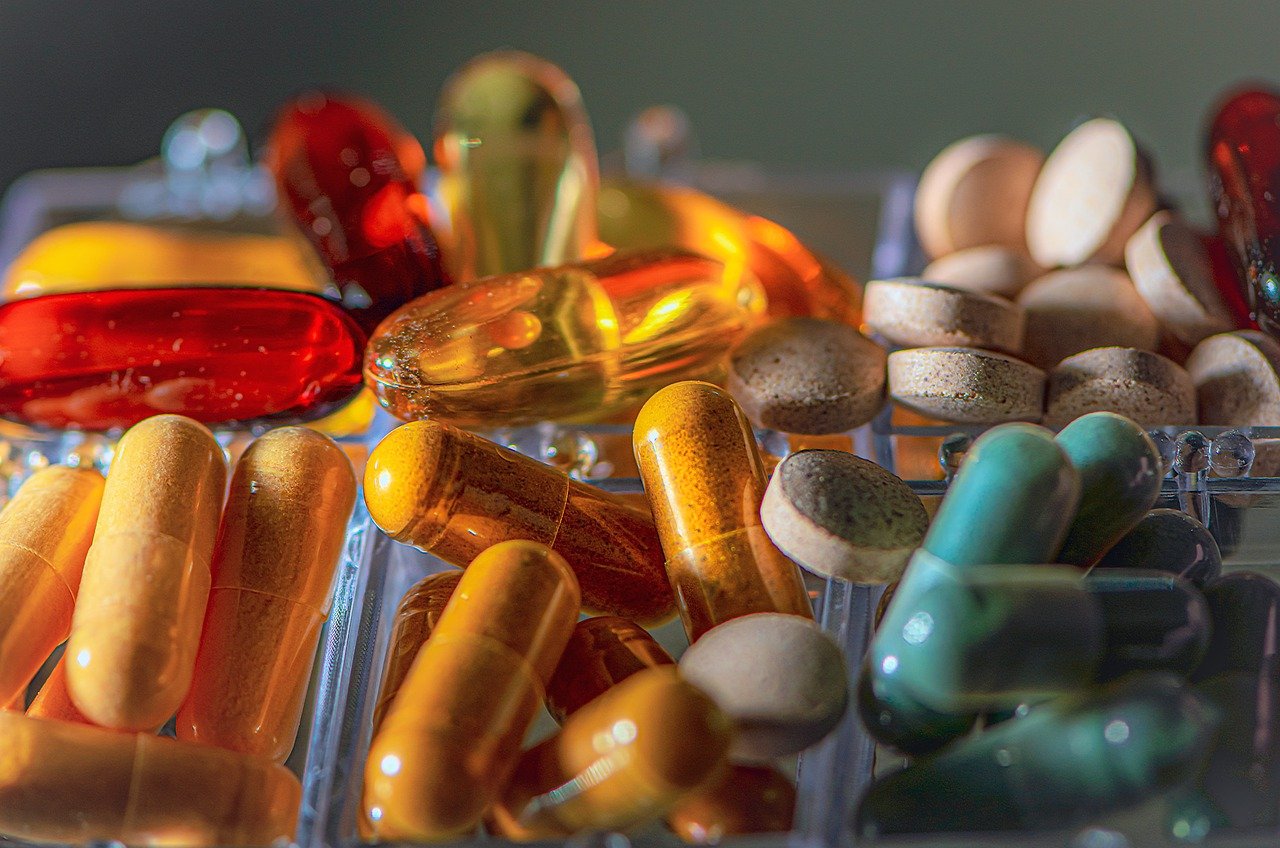
Public Health Risks
The mismanagement of pharmaceutical waste poses serious public health threats that cannot be overlooked. When medications are improperly disposed of, they can leach into our environment, creating a cocktail of hazardous substances that may find their way into our water supplies and soil. This uncontrolled exposure can lead to a host of health issues, ranging from increased prevalence of diseases to the alarming rise of antibiotic resistance in communities. But what does this mean for our everyday lives? Well, let's dive deeper into the implications of improper pharmaceutical waste disposal.
One of the most pressing concerns is water contamination. When pharmaceuticals enter our water systems, they don't just disappear; they linger, affecting aquatic life and, ultimately, human health. Imagine turning on your tap and unknowingly ingesting traces of medications that were carelessly thrown away. It’s a frightening thought, isn’t it? Studies have shown that even low concentrations of pharmaceuticals can disrupt aquatic ecosystems, leading to altered behaviors in fish and other organisms. These changes can ripple through the food chain, affecting everything from tiny plankton to larger predators, including humans.
Pharmaceuticals in our water supplies can lead to serious health risks for humans. For instance, certain medications can disrupt hormonal balances, potentially leading to reproductive issues and developmental problems in children. Research indicates that long-term exposure to contaminated drinking water may also increase the risk of cancers and other chronic diseases. The question is, how can we protect ourselves and our families from these risks? Understanding the sources and pathways of contamination is crucial for effective prevention strategies.
As we explore the effects on aquatic life, it becomes evident that pharmaceuticals can have devastating impacts on fish and other organisms. For example, studies have documented changes in fish behavior, such as altered mating rituals and feeding patterns, due to exposure to certain drugs. These changes can lead to population declines and disrupt the balance of aquatic ecosystems. The implications are profound, as healthy aquatic ecosystems are vital for biodiversity and the overall health of our planet.
Now, let’s talk about the potential long-term effects on human health. Contaminated drinking water can lead to various health issues, including hormonal disruptions and increased cancer risks. Imagine sipping a glass of water that contains traces of antibiotics or hormones—this is not just an abstract concern; it’s a reality in many communities. Health experts warn that the cumulative effects of these contaminants could lead to chronic health issues that we may not fully understand yet. The need for stringent monitoring and regulation of our water supplies is more critical than ever.
Furthermore, the rise of antibiotic resistance is a direct consequence of improper pharmaceutical waste disposal. When antibiotics are introduced into the environment, they can promote the growth of resistant bacteria. This means that infections that were once easily treatable could become life-threatening. It’s a ticking time bomb, and the more we ignore it, the worse it gets. Public health initiatives must focus on educating communities about the risks associated with improper disposal and the importance of responsible medication management.
In summary, the public health risks associated with improper pharmaceutical waste disposal are alarming. From water contamination to the rise of antibiotic-resistant bacteria, the consequences are far-reaching and demand urgent action. It’s not just about protecting the environment; it’s about safeguarding our health and the health of future generations. Now is the time for individuals, communities, and policymakers to come together and advocate for better practices in pharmaceutical waste management.
- What should I do with unused medications? - Always return unused medications to a designated take-back program or pharmacy that offers disposal services.
- Can flushing medications down the toilet harm the environment? - Yes, flushing medications can lead to water contamination, which poses risks to aquatic life and human health.
- How can I learn more about local pharmaceutical waste disposal regulations? - Check with your local health department or environmental agency for information on regulations and disposal options.
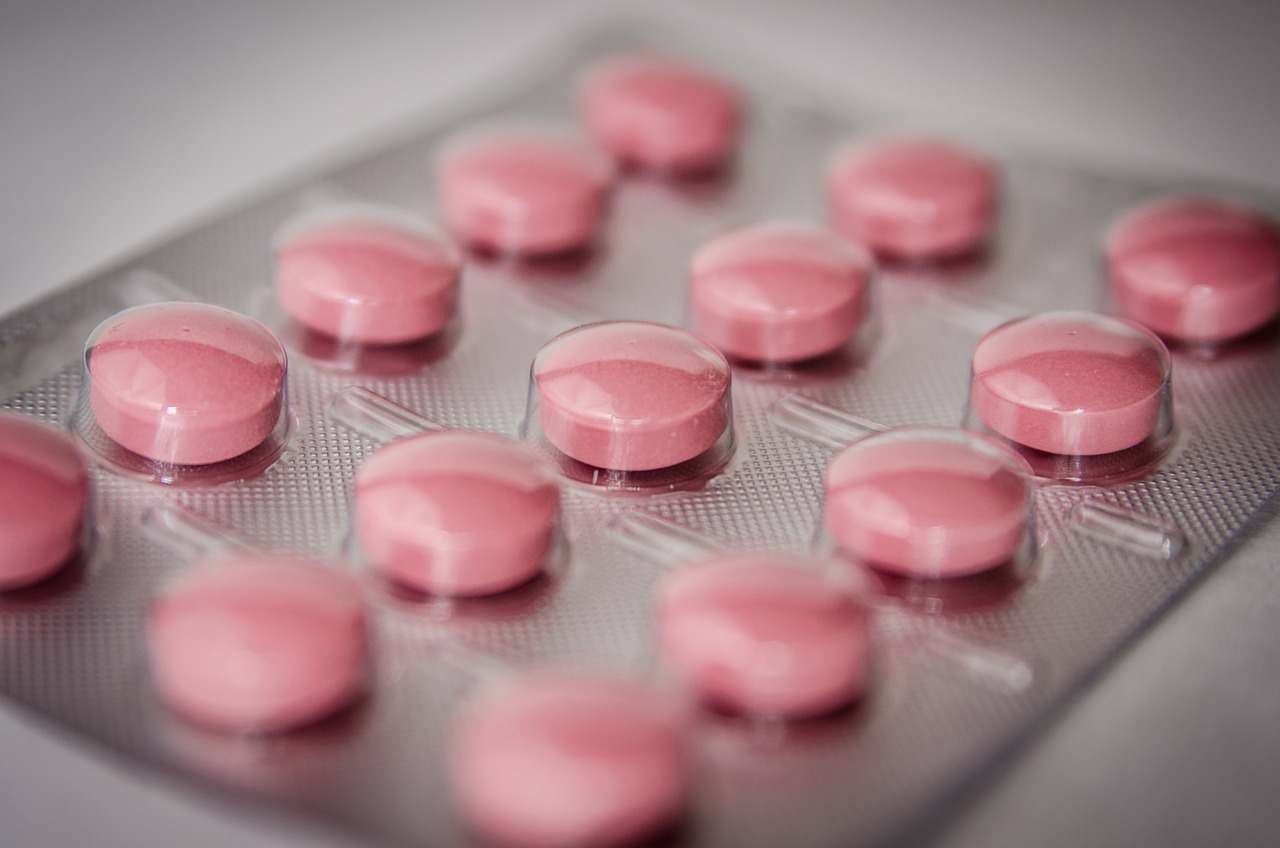
Water Contamination
Water contamination is a pressing issue that arises from the improper disposal of pharmaceutical waste. When medications are discarded inappropriately—whether through flushing down toilets or throwing them in the trash—they can seep into our water systems, leading to dire consequences. Imagine a world where the very water we drink is tainted with traces of drugs; this is not just a hypothetical scenario but a reality in many areas. The presence of pharmaceuticals in our water supply can disrupt aquatic ecosystems and pose significant health risks to humans.
Take, for instance, the case of the Potomac River in the United States, where studies have shown the presence of various prescription drugs, including antidepressants and hormones. These contaminants not only affect the river's aquatic life but can also make their way into the drinking water supply for millions of people. The implications of this are staggering—what if the water you’re consuming has traces of medication that could alter your hormonal balance or affect your health in unforeseen ways?
The issue of water contamination due to pharmaceutical waste is multifaceted. Here are some of the critical aspects:
- Disruption of Aquatic Life: Pharmaceuticals can lead to behavioral changes in fish and other organisms, affecting their ability to survive and reproduce.
- Health Risks for Humans: When these contaminated waters are consumed, they can lead to serious health concerns, including hormonal disruption and increased cancer risk.
- Bioaccumulation: Some substances can accumulate in the bodies of aquatic organisms, potentially entering the human food chain through fish consumption.
Moreover, the effects of water contamination are not always immediately visible. Over time, the gradual accumulation of these substances can lead to significant ecological shifts. For example, certain fish species may become more resistant to diseases, while others may face increased vulnerability, creating an imbalance in the ecosystem. This ripple effect can lead to a decline in biodiversity, which is crucial for maintaining healthy ecosystems.
To further illustrate the impact of pharmaceutical waste on water systems, consider the following table that outlines various pharmaceuticals commonly found in water supplies, their sources, and potential effects:
| Pharmaceutical | Source | Potential Effects |
|---|---|---|
| Antibiotics | Improper disposal, agricultural runoff | Antibiotic resistance in bacteria |
| Hormones | Flushing, agricultural use | Disruption of reproductive systems in aquatic life |
| Antidepressants | Household waste, sewage | Behavioral changes in fish |
As we can see, the contamination of our water supply with pharmaceutical waste is not just an environmental issue; it’s a public health crisis that demands immediate attention. Addressing this problem requires a collective effort from individuals, communities, and policymakers. We must advocate for better disposal practices and increased awareness about the risks associated with improper pharmaceutical waste management. Only then can we hope to safeguard our water resources for future generations.
- What should I do with unused medications? It's best to take them to a drug take-back program or follow local guidelines for safe disposal.
- How does pharmaceutical waste affect drinking water? Contaminants can enter the water supply, potentially leading to health issues for consumers.
- Are there regulations on pharmaceutical waste disposal? Yes, but enforcement and compliance vary widely, highlighting the need for stricter regulations.

Effects on Aquatic Life
When we talk about the effects of pharmaceutical waste on aquatic life, we're diving into a deep and troubling issue. Imagine a serene lake or a flowing river, teeming with vibrant fish and lush aquatic plants. Now, picture that same body of water, tainted by the remnants of medications that have been improperly disposed of. It's not just an environmental concern; it's a grave threat to the delicate balance of aquatic ecosystems.
Pharmaceuticals, when they enter our water systems, can wreak havoc on the organisms that call these habitats home. For instance, studies have shown that substances like antidepressants and hormonal medications can alter the behavior of fish. They may become less able to evade predators or more prone to aggressive behavior, leading to disrupted food chains. This is a classic example of the butterfly effect, where a small change in one part of the ecosystem can lead to significant consequences elsewhere.
Moreover, the reproductive health of aquatic species is also at risk. Research indicates that exposure to certain pharmaceuticals can result in reproductive deformities and reduced fertility rates among fish populations. For example, the presence of estrogens in water bodies has been linked to male fish developing female characteristics, a phenomenon known as intersex conditions. This not only threatens the survival of individual species but also puts entire populations at risk.
To illustrate the severity of this issue, consider the following table that summarizes key findings from various studies on pharmaceutical impacts on aquatic life:
| Pharmaceutical | Effect on Aquatic Life |
|---|---|
| Antidepressants | Altered behavior, increased aggression |
| Estrogens | Development of intersex characteristics |
| Antibiotics | Disruption of microbial communities |
| Non-steroidal anti-inflammatory drugs (NSAIDs) | Kidney damage in fish |
As you can see, the implications are not just theoretical; they are backed by scientific evidence that underscores the urgency of addressing pharmaceutical waste disposal. When we allow these substances to seep into our waterways, we are not only harming aquatic life but also jeopardizing the health of ecosystems that humans rely on for food, recreation, and even drinking water.
In conclusion, the effects of pharmaceutical waste on aquatic life are profound and multifaceted. It's a reminder that our actions have consequences, and the health of our water systems is intricately linked to the choices we make regarding waste disposal. By understanding these effects, we can work towards solutions that protect our precious aquatic ecosystems for future generations.
- What are the main sources of pharmaceutical waste? Pharmaceutical waste primarily comes from hospitals, clinics, pharmacies, and households.
- How can I safely dispose of unused medications? You can take them to a pharmacy take-back program or follow local guidelines for disposal.
- What are the signs of water contamination? Signs may include unusual odors, discoloration, or changes in aquatic life behavior.
- Are there regulations for pharmaceutical waste disposal? Yes, but regulations vary by location and often need stricter enforcement.

Human Health Implications
When we talk about stemming from improper pharmaceutical waste disposal, it’s like opening a Pandora's box of potential risks. The reality is that contaminated drinking water, which can be laced with pharmaceuticals, poses significant threats to our health. Imagine sipping a glass of water that contains traces of medications meant for someone else—sounds unsettling, right? These substances can disrupt our hormonal balance, leading to a host of health issues.
Research has shown that exposure to even low levels of pharmaceuticals can result in serious health consequences. For instance, certain medications can interfere with the endocrine system, which is crucial for regulating hormones in our bodies. This disruption can lead to conditions such as infertility, developmental disorders, and even certain cancers. The long-term implications are staggering when you consider that many people may be unknowingly exposed to these contaminants through their drinking water.
Furthermore, the presence of pharmaceuticals in our water supply can lead to the development of antibiotic-resistant bacteria. When antibiotics are improperly disposed of, they can enter our waterways and soil, creating an environment where bacteria evolve and become resistant to these drugs. This resistance not only complicates treatment for common infections but also poses a serious public health risk, as it can lead to higher medical costs, prolonged hospital stays, and increased mortality.
Let’s break down some specific health issues associated with pharmaceutical contamination:
- Hormonal Disruptions: Medications like birth control pills can end up in water systems, affecting both wildlife and humans.
- Cancer Risks: Certain pharmaceuticals, such as those used in chemotherapy, can lead to increased cancer risks when they contaminate drinking water.
- Neurological Effects: Drugs meant to treat mental health conditions can cause neurological issues when they seep into the water supply.
It’s essential to recognize that the issue of pharmaceutical waste isn’t just an environmental concern; it’s a pressing public health crisis. The more we understand the implications of improper disposal, the more we can advocate for change. By promoting proper disposal methods and raising awareness about the dangers of pharmaceutical waste, we can work together to protect our health and the health of future generations.
- What should I do with unused medications? It's best to take them to a drug take-back program or follow local guidelines for disposal.
- Can pharmaceuticals in water affect my health? Yes, exposure to pharmaceuticals in drinking water can lead to various health issues, including hormonal disruptions and antibiotic resistance.
- How can I help reduce pharmaceutical waste? You can educate others, properly dispose of medications, and support policies that promote safe disposal methods.
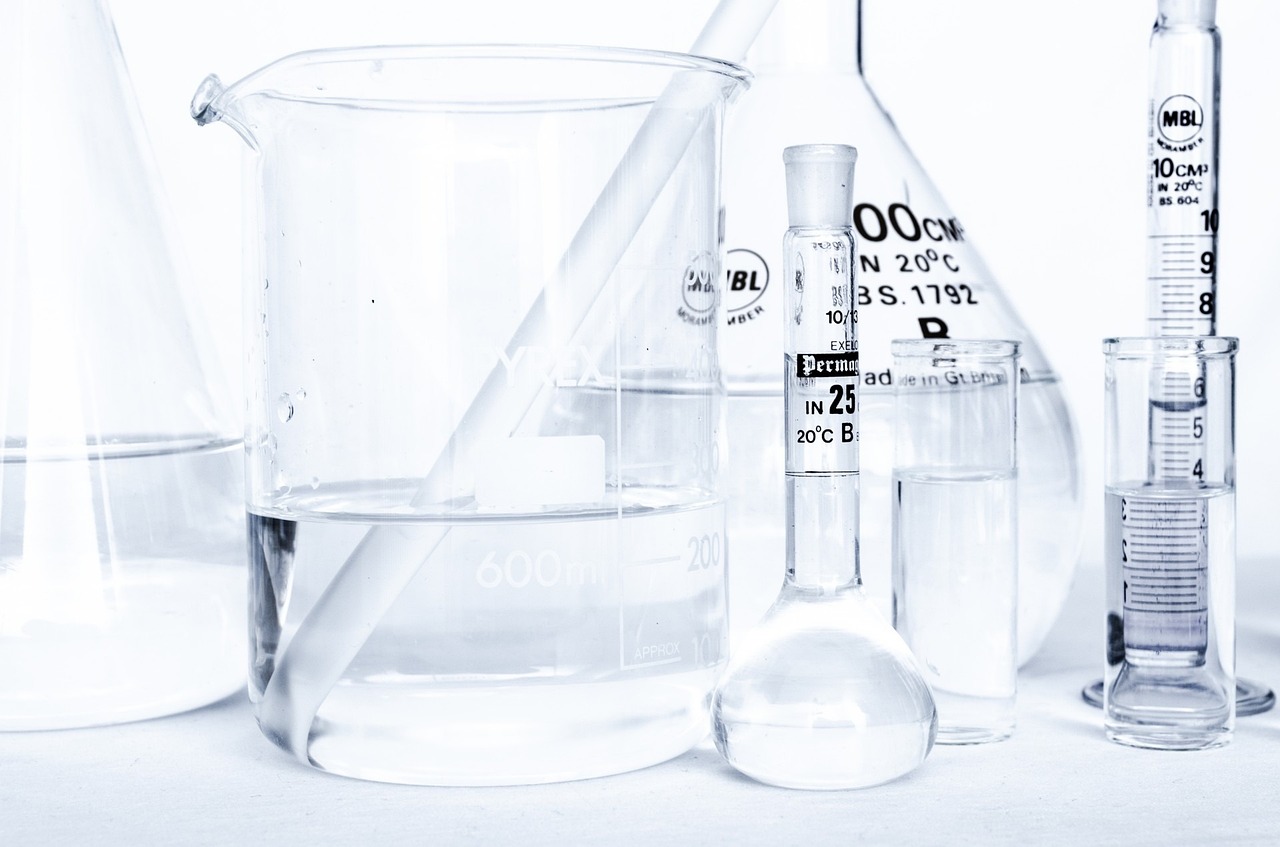
Soil Pollution
Soil pollution is an insidious consequence of improper pharmaceutical waste disposal that often goes unnoticed until it's too late. When pharmaceuticals are discarded carelessly, they can leach into the soil, creating a toxic environment for plants, animals, and humans alike. This contamination can lead to a series of detrimental effects, not only on the ecosystem but also on food safety and agricultural practices. Imagine a farmer cultivating crops in soil tainted with harmful chemicals from expired medications—this scenario is more common than you might think.
One of the primary ways pharmaceutical waste affects soil is through the process of leaching. When rainwater or irrigation seeps into the ground, it can carry these hazardous substances down into the soil layers, where they can persist for years. This contamination can hinder the growth of plants, as their roots absorb not just nutrients but also these harmful chemicals. The implications for our food supply are alarming, as contaminated crops may enter the food chain, posing risks to human health.
Moreover, the impact of soil pollution extends beyond agriculture. It disrupts the natural balance of soil ecosystems, affecting microorganisms that play a critical role in nutrient cycling and soil health. For instance, beneficial bacteria and fungi that help decompose organic matter and promote plant growth can be severely affected, leading to poorer soil quality and reduced agricultural yields. This creates a vicious cycle where farmers may resort to using more fertilizers and pesticides, further exacerbating the problem.
To illustrate the gravity of the situation, consider the following table that outlines some common pharmaceuticals found in contaminated soils and their potential effects:
| Pharmaceutical | Common Use | Potential Soil Effects |
|---|---|---|
| Antibiotics | Treating bacterial infections | Disruption of microbial communities |
| Hormones | Hormonal therapies | Altered plant growth and reproduction |
| Analgesics | Pain relief | Soil toxicity affecting crop health |
The consequences of soil pollution from pharmaceutical waste are not just environmental; they also carry significant public health implications. When we consume crops grown in contaminated soil, we risk exposing ourselves to harmful substances that can lead to various health issues, including hormonal imbalances and increased cancer risks. It's essential to recognize that the health of our soil directly impacts our own health and well-being.
In conclusion, addressing soil pollution caused by improper pharmaceutical waste disposal is critical for safeguarding our environment and public health. By implementing proper disposal methods and raising awareness about the issue, we can protect our soils, our food supply, and ultimately, ourselves.
- What are the main causes of soil pollution from pharmaceuticals? Soil pollution primarily occurs due to improper disposal methods, such as flushing medications down the toilet or throwing them in the trash.
- How can I safely dispose of unused medications? Many communities offer take-back programs or designated disposal sites for pharmaceuticals. Always check local guidelines for safe disposal methods.
- What are the long-term effects of soil pollution on agriculture? Long-term soil pollution can lead to reduced crop yields, loss of soil fertility, and contamination of the food supply chain.
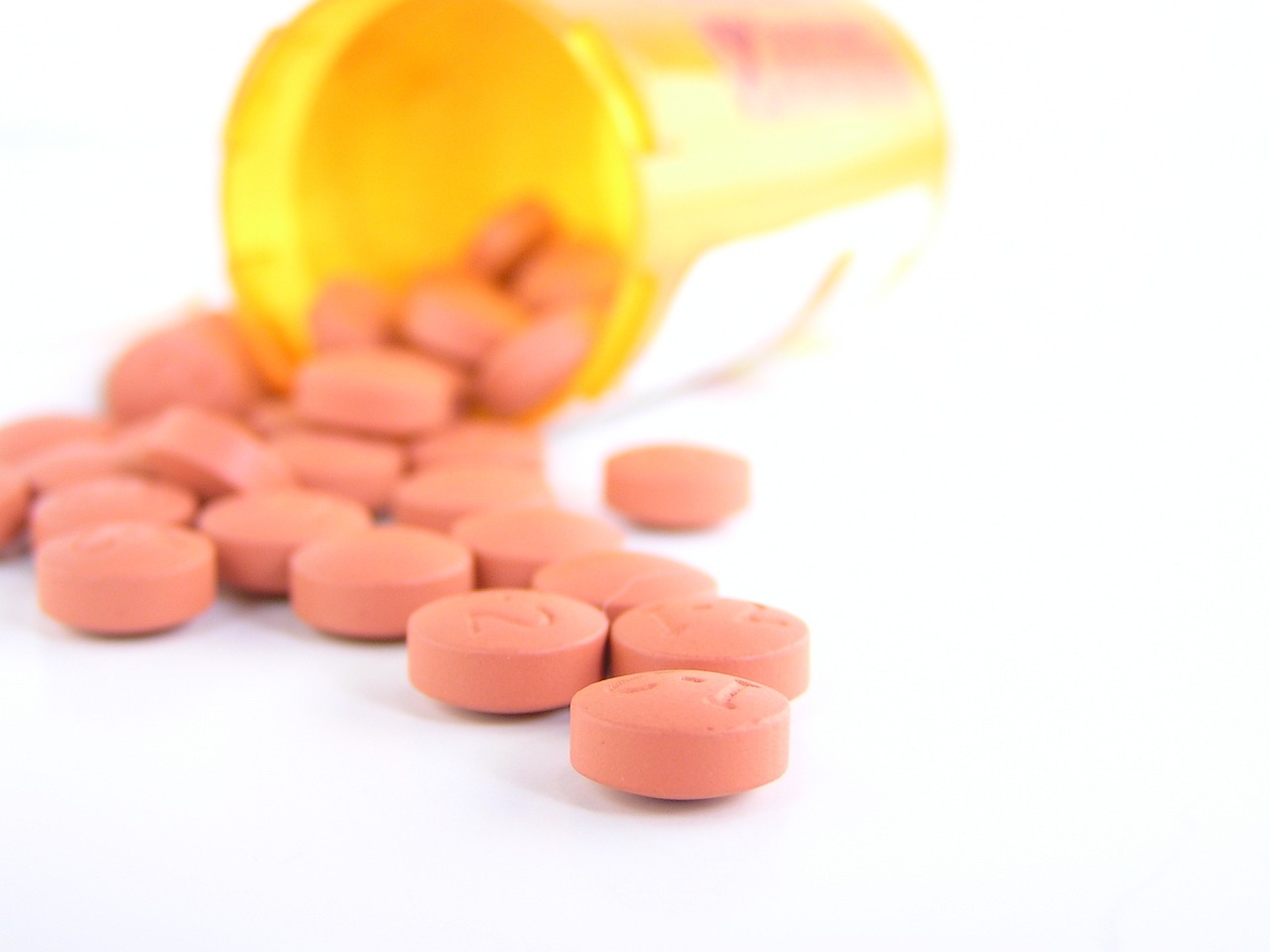
Regulatory Challenges
The issue of improper pharmaceutical waste disposal is not just a matter of environmental concern; it also highlights significant that complicate effective management. With the rapid growth of the pharmaceutical industry and the increasing complexity of medications, many countries struggle to keep up with the necessary regulations to ensure safe disposal practices. The existing frameworks often lack the strength and clarity needed to address the unique challenges posed by pharmaceutical waste.
One of the primary challenges is the inconsistency in regulations across different regions. For instance, while some countries have established stringent guidelines for pharmaceutical waste, others operate with vague or outdated policies. This inconsistency leads to confusion among healthcare providers, pharmacies, and consumers about the proper disposal methods. As a result, many individuals unknowingly contribute to environmental harm by discarding medications inappropriately, such as flushing them down the toilet or throwing them in the trash.
Moreover, the enforcement of existing regulations is often lacking. Many regulatory bodies face resource constraints, which hampers their ability to monitor compliance effectively. This oversight can result in significant gaps in the management of pharmaceutical waste. Without proper enforcement, even the best regulations can become ineffective, leaving communities at risk of exposure to hazardous substances. The need for a robust enforcement mechanism is critical to ensure that regulations are not only in place but actively upheld.
To illustrate this point, consider the following table that outlines the key regulatory gaps in pharmaceutical waste management:
| Regulatory Aspect | Current Status | Recommended Action |
|---|---|---|
| Inconsistency Across Regions | Varies significantly | Establish standardized regulations |
| Enforcement Mechanisms | Weak and under-resourced | Increase funding and resources |
| Public Awareness | Limited outreach | Implement educational campaigns |
Addressing these regulatory challenges requires a multi-faceted approach. First, there is a pressing need for governments and regulatory agencies to collaborate and develop comprehensive guidelines that can be uniformly applied. This could involve international cooperation to ensure that best practices are shared and adopted globally. Additionally, increasing public awareness about the importance of proper pharmaceutical waste disposal can empower individuals to take action. When people understand the risks associated with improper disposal, they are more likely to participate in safe disposal programs.
Furthermore, healthcare facilities and pharmacies should be encouraged to implement best practices for waste management. This includes training staff on proper disposal methods and providing accessible disposal options for patients. By fostering a culture of responsibility and compliance, the healthcare sector can play a pivotal role in mitigating the risks associated with pharmaceutical waste.
In conclusion, while regulatory challenges in pharmaceutical waste disposal are significant, they are not insurmountable. By strengthening regulations, improving enforcement, and raising public awareness, we can create a safer environment for all. The responsibility lies not only with regulatory bodies but also with healthcare providers, pharmacies, and the public to ensure that pharmaceutical waste is managed effectively and responsibly.
- What is pharmaceutical waste? - Pharmaceutical waste includes expired, unused, or contaminated medications that require special disposal methods to prevent harm to the environment and public health.
- Why is proper disposal of pharmaceuticals important? - Proper disposal is crucial to prevent environmental contamination and protect public health from the risks associated with hazardous substances.
- What are the common methods for disposing of pharmaceutical waste? - Common methods include take-back programs, incineration, and disposal in designated hazardous waste containers.
- How can I safely dispose of my medications? - Check with local pharmacies or health departments for take-back programs, and follow guidelines for disposal if no programs are available.

Current Regulations
The management of pharmaceutical waste is a complex issue that is governed by a patchwork of regulations at various levels—federal, state, and local. In the United States, the primary regulatory framework is established by the Environmental Protection Agency (EPA) under the Resource Conservation and Recovery Act (RCRA). This act categorizes pharmaceutical waste as hazardous if it meets certain criteria, which means it must be treated and disposed of in accordance with strict guidelines. However, the regulations can vary significantly from one state to another, leading to a lack of uniformity in how pharmaceutical waste is managed across the country.
One of the major challenges is that many healthcare facilities and individuals are often unaware of the specific regulations that apply to them. For instance, while some states have robust programs for the disposal of unused medications, others may lack comprehensive guidelines, leaving a gap in enforcement. This inconsistency can result in improper disposal practices, contributing to the environmental and public health issues previously discussed.
Furthermore, the current regulations primarily focus on large-scale generators of pharmaceutical waste, such as hospitals and clinics, while smaller entities, including pharmacies and individual households, may not be subject to the same stringent requirements. This oversight can lead to significant amounts of pharmaceutical waste being improperly disposed of, whether through regular trash or down the drain, which ultimately exacerbates the problem.
To illustrate the regulatory landscape, consider the following table that outlines some key regulations and their respective focus areas:
| Regulation | Focus Area | Key Points |
|---|---|---|
| Resource Conservation and Recovery Act (RCRA) | Hazardous Waste Management | Defines hazardous waste, establishes treatment and disposal standards. |
| Controlled Substances Act (CSA) | Controlled Substances | Regulates the disposal of medications classified as controlled substances. |
| State-Specific Regulations | Local Compliance | Varies by state; may include additional requirements for pharmaceutical waste disposal. |
As we can see, the regulations are in place to protect both public health and the environment, yet the gaps and inconsistencies present a significant barrier to effective pharmaceutical waste management. There is a clear need for better education and awareness among all stakeholders—including healthcare providers, pharmacies, and the general public—about their responsibilities in managing pharmaceutical waste. By improving compliance with existing regulations and advocating for stronger policies, we can make strides toward mitigating the negative impacts of improper pharmaceutical waste disposal.
- What is pharmaceutical waste? Pharmaceutical waste refers to unused, expired, or contaminated medications and their packaging that require special disposal methods to prevent harm to the environment and public health.
- Why is proper disposal of pharmaceutical waste important? Proper disposal is crucial to prevent environmental contamination, protect wildlife, and safeguard public health from hazardous substances.
- What are the consequences of improper disposal? Improper disposal can lead to water and soil contamination, increased public health risks, and contribute to the development of antibiotic resistance.
- How can I properly dispose of unused medications? Many communities offer medication take-back programs, and it’s advisable to consult local regulations for specific disposal guidelines.

Recommendations for Improvement
Improving pharmaceutical waste management is not just a matter of compliance; it's a necessity for protecting our environment and public health. To tackle the challenges posed by improper disposal, a multi-faceted approach is essential. First and foremost, stricter regulations need to be implemented to govern the disposal of pharmaceutical waste. Currently, many regions lack comprehensive laws that specifically address this issue, leading to widespread negligence. By establishing clear guidelines and penalties for non-compliance, we can motivate pharmaceutical companies, healthcare providers, and individuals to prioritize proper disposal methods.
Moreover, public awareness campaigns are crucial. Many people are unaware of the dangers associated with improper disposal of medications. Educational initiatives can inform the public about safe disposal practices, such as utilizing take-back programs or designated disposal sites. For instance, community events that allow residents to drop off unused medications can significantly reduce the amount of waste that ends up in landfills or water systems. Imagine a world where every household knows exactly how to dispose of their medications safely—this could drastically reduce contamination risks.
In addition, healthcare facilities must adopt best practices for pharmaceutical waste management. This includes training staff on proper disposal methods and establishing protocols for segregating hazardous waste from regular waste. The implementation of a detailed waste management plan can ensure that all pharmaceutical waste is handled appropriately from the point of generation to final disposal. For example, hospitals can create a
| Type of Waste | Disposal Method | Responsible Personnel |
|---|---|---|
| Expired Medications | Take-back programs | Pharmacy Staff |
| Contaminated Supplies | Incineration | Waste Management Team |
| Unused Prescriptions | Designated Disposal Sites | Healthcare Providers |
Finally, collaboration between governmental agencies, pharmaceutical companies, and environmental organizations is vital. By sharing resources and expertise, these entities can develop innovative solutions to address the pharmaceutical waste crisis. For instance, creating a national database that tracks pharmaceutical waste can help identify hotspots of improper disposal and target interventions where they are most needed. This collaborative approach not only enhances compliance but also fosters a culture of responsibility towards our environment.
In conclusion, improving pharmaceutical waste disposal requires a concerted effort from all sectors of society. By implementing stricter regulations, raising public awareness, adopting best practices in healthcare, and fostering collaboration, we can create a safer and healthier environment for everyone. The time to act is now—let's take the necessary steps to ensure that our medications do not harm our planet or our health.
Q1: What should I do with expired medications?
A1: Expired medications should be disposed of properly, preferably through take-back programs or designated disposal sites. Never throw them in the trash or flush them down the toilet, as this can contaminate water sources.
Q2: How can I find a medication take-back program near me?
A2: You can check with local pharmacies, hospitals, or community health organizations for information on upcoming take-back events or permanent drop-off locations.
Q3: What are the environmental impacts of improper pharmaceutical waste disposal?
A3: Improper disposal can lead to water and soil contamination, harming aquatic life and disrupting ecosystems. It can also pose serious health risks to humans when contaminated water is consumed.
Q4: Are there regulations governing pharmaceutical waste disposal?
A4: Yes, there are regulations, but they vary by region. It's important to stay informed about local laws and guidelines to ensure compliance and protect public health.
Frequently Asked Questions
- What are the environmental impacts of improper pharmaceutical waste disposal?
Improper disposal of pharmaceutical waste can lead to severe environmental degradation. It can contaminate water sources and pollute soil, which in turn affects ecosystems and biodiversity. This means that not only are we harming the planet, but we are also jeopardizing the delicate balance of life in our surroundings.
- How does pharmaceutical waste affect public health?
The mismanagement of pharmaceutical waste poses significant public health risks. Exposure to hazardous substances can lead to increased disease prevalence and even contribute to antibiotic resistance in communities. Essentially, when we don’t dispose of these substances correctly, we are putting our health at risk.
- What specific health issues can arise from contaminated water supplies?
Contaminated water supplies can lead to a range of health issues in humans, including hormonal disruptions and a heightened risk of cancer. The long-term effects can be devastating, making it crucial to understand the importance of proper waste disposal.
- How do pharmaceuticals affect aquatic life?
Pharmaceuticals that enter water bodies can significantly harm fish and other aquatic organisms. They can cause altered behaviors and reproductive issues, which disrupts the entire aquatic ecosystem. This is a wake-up call for anyone who cares about environmental conservation!
- What are the current regulations regarding pharmaceutical waste disposal?
Current regulations governing pharmaceutical waste disposal often reveal gaps and inconsistencies. While some laws exist, they may not be stringent enough to ensure effective management. Understanding these regulations is essential for improvement and compliance.
- What can be done to improve pharmaceutical waste management?
To enhance pharmaceutical waste management practices, it's vital to implement stronger policies and launch public awareness campaigns. Educating the public about proper disposal methods can lead to significant improvements in how we handle pharmaceutical waste.

